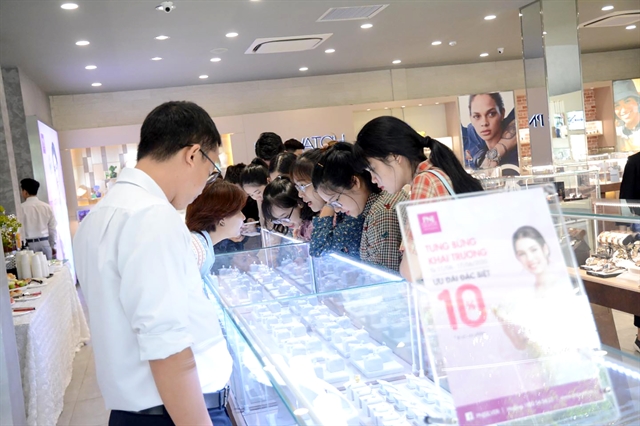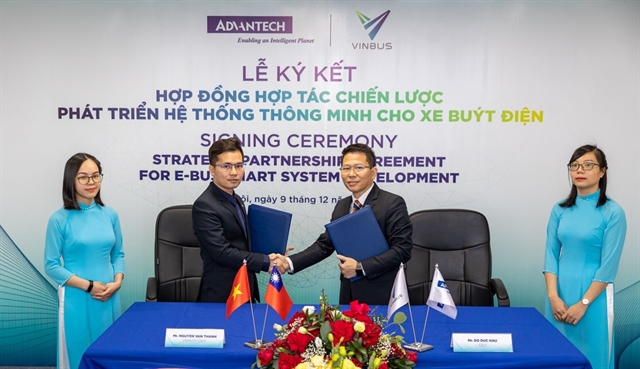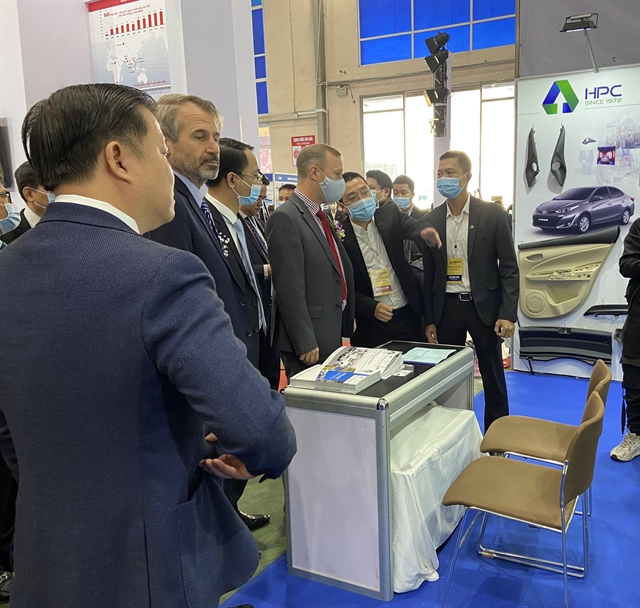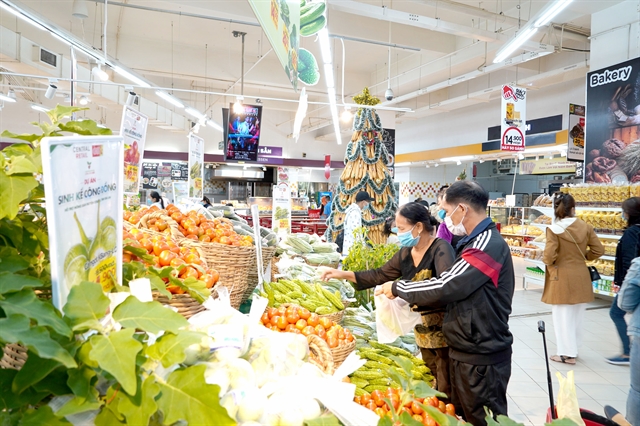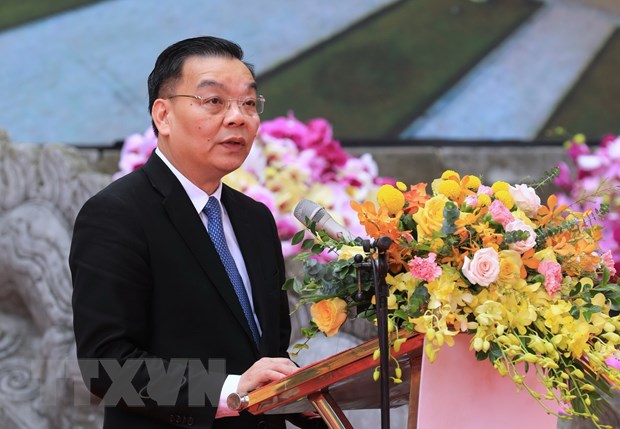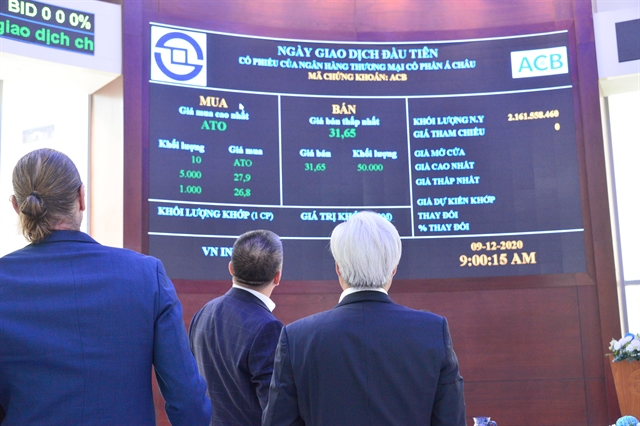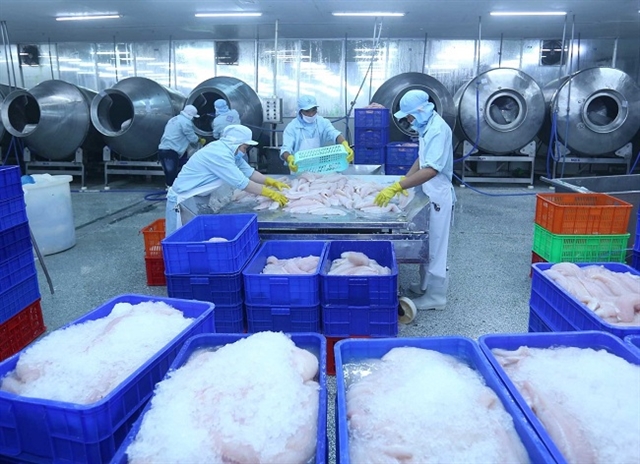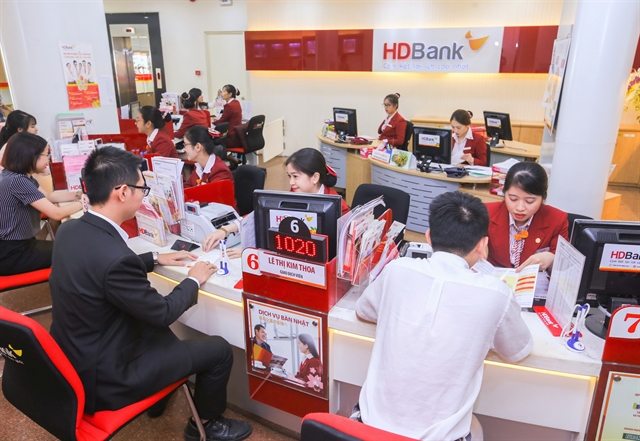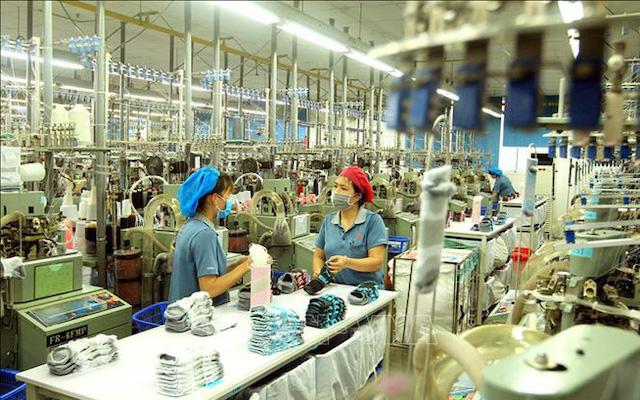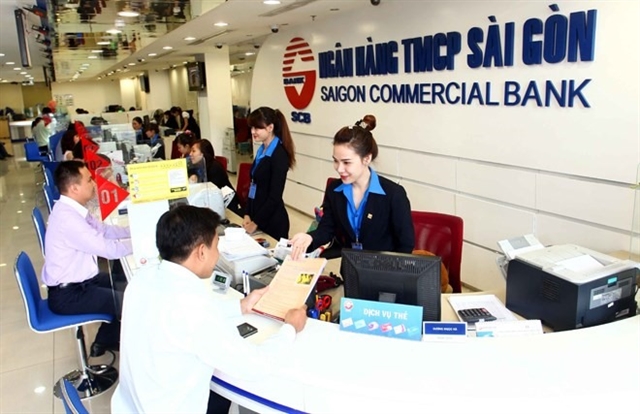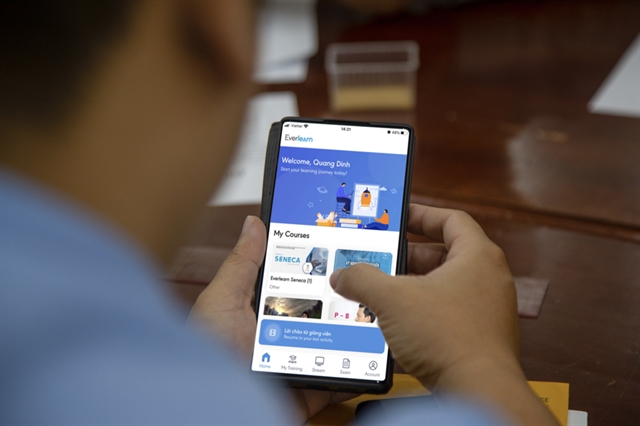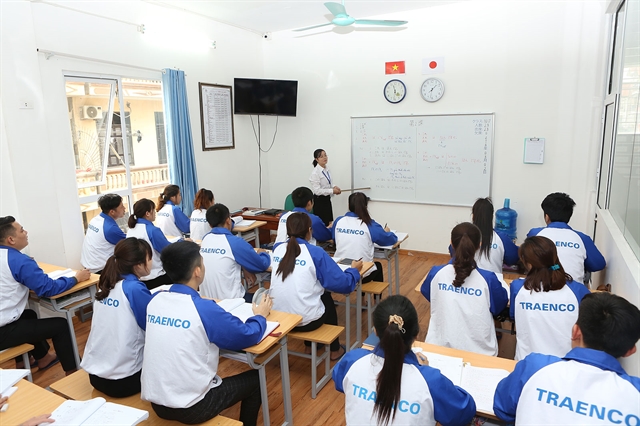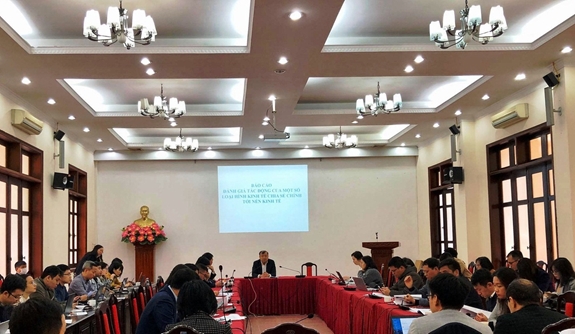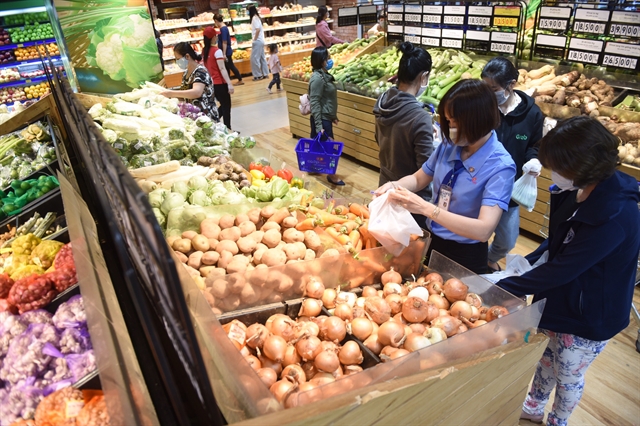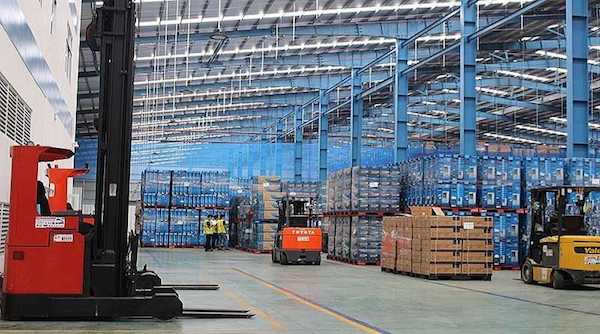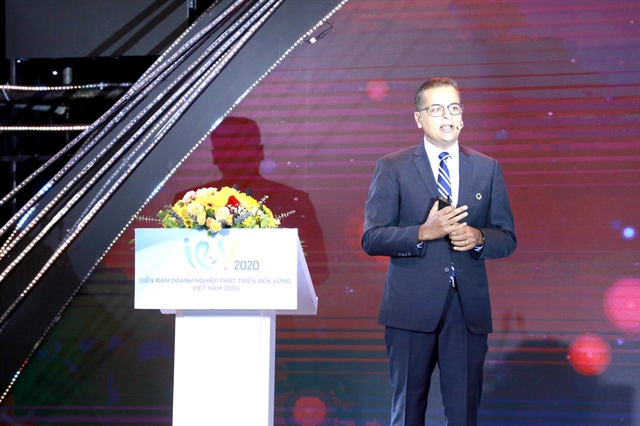
Nestlé Vietnam was honoured as one of the top 10 sustainable businesses in 2020 by the Vietnam Business Council for Sustainable Development (VBCSD). Viet Nam News spoke with Binu Jacob, CEO of the firm and co-chair of the council about the development strategy in Viet Nam
What is the role of sustainable development in the context of the COVID-19 pandemic?
2020 is a year of many challenges and upheaval. The COVID-19 pandemic and the effects of climate change have reminded us how easily we live in a highly interconnected and interconnected world.
The business community, more than ever, needs to co-operate for sustainable development to bring long-term and stable prosperity to the whole society. As co-chair of the Vietnam Business Council for Sustainable Development, our goal is to inspire and help the business community to realise and fulfil their role.
Particularly at Nestlé, in addition to ongoing sustainability initiatives and commitments, the group has just announced a specific roadmap to achieve its ambition to eliminate carbon emissions by 2050, halving its emissions by year 2030. We will do our best together with our partners to achieve this goal.
What drives your business to pursue a sustainable development strategy?
Established in 1995, Nestlé Vietnam has continuously expanded the investment and diversified products to serve food and nutrition demand and improve quality of lives in Việt Nam. In our 25-year journey, we have developed long-term investment and sustainable development with the mindset of "global company with local character".
Nestlé has worked closely with partners in Việt Nam to create shared value, contributing to society while ensuring long-term success in business and those goals. To develop sustainably, we follow a vision to the future, maintaining and developing the relationships from distributors, suppliers, farmers and related agencies to share our success with the viewpoint: “We grow when our partners grow.”
Nestlé Vietnam is one of the enterprises in the top 10 with sustainable development in Việt Nam for many years. This year we were honoured to be elected as co-chair of the VBCSD, which was established by the Vietnam Chamber of Commerce and Industry (VCCI). As one of the most prestigious organisations in Việt Nam, VCCI-VBCSD has been playing an active role in supporting the business community to participate in the implementation of the Strategy for Sustainable Development in Việt Nam.
The Food and Agriculture Organisation of the United Nations (FAO) recently stated that the COVID-19 pandemic threatens the sustainable development goals, so what has Nestle Vietnam been doing to achieve these goals in Việt Nam as the world's leading producer of food products?
“Create Shared Value” is the foundation for Nestlé's sustainable development strategy, bringing benefits to both the company and the communities we worked with. Individuals and families, communities and the planet are the three impact groups we have linked together through shared commitments to achieve our goals in line with the roadmap of the United Nations Sustainable Development Goals (SDGs) by 2030.
We have been working hard to achieve the SDGs in all markets including in Việt Nam. We have annual sustainability reports to measure and evaluate the sustainable progress has been made and achieved on these SDGs.
In Việt Nam, we prioritise dealing with climate change issues, reducing CO2 emissions throughout the entire operations and supply chain of the company and protecting water resources sustainably. We have built and shaped a waste-free future, pioneering research and development so that by 2025, all of our product packaging can be recycled and reused.
Nestle has won many great awards in recognition of its contribution to sustainable development efforts in Việt Nam, how does your business pursue this development strategy?
As a way to develop sustainably, we have promoted gender equality activities and empowered women in both the workplace and throughout the company's value chain. Recently, the United Nations Agency on Gender Equality and the Empowerment of Women (UN Women) awarded the Principles of Empowering Women (WEPs) award to Nestlé Vietnam for its commitments and achievements, affirming our commitment to empowering women to boost gender equality.
Launched in 2011, the project of NESCAFÉ Plan encouraged farmers to carry out sustainable coffee development, bringing lots of innovations and new technologies to create a positive impact on the sustainable development of Việt Nam's coffee industry and improving the lives of farmers and local people.
The project has contributed to the development of chain link strengthening, and increasing quality and value for Vietnamese coffee beans, aiming to make Việt Nam a reference for world robusta coffee.
After 10 years, the project has distributed more than 46 million high-yield and disease-resistant seedlings to farmers and improved 46,000 hectares of aging coffee trees in the Central Highlands through replanting. It also provided more than 260,000 farmers with sustainable farming techniques and training programmes with the participation of agricultural experts and more than 21,000 farmers have so far achieved the 4C International Coffee certification. In addition, the NESCAFÉ Plan also contributes to saving 40 per cent of irrigation water, reducing 20 per cent of chemical fertilisers and pesticides and increasing more than 30 per cent of income for farmers.
In our commitment to building and shaping a zero waste future, all our factories in Việt Nam have achieved the goal of not having solid waste landfilled into the environment. Aiming for more environmentally friendly alternatives, Nestlé Vietnam is the first food business in Việt Nam to use FSC certified paper straws for instant nutritional products. We are also active in communicating perceptions and working with partners and businesses in the community to make a greater impact on the matter. Nestlé Vietnam and Lavie Vietnam, a member of the Nestlé group, are the two founding members of the Vietnam Packaging Recycling Alliance (PRO Vietnam).
To deal with crisis caused by the COVID-19 pandemic, we put human health and lives first with a priority strategy "5 + 1" to ensure the safety of our employees, optimise the supply chain to ensure smooth production and business operations, optimise distribution and retail channels to ensure all goods being distributed to consumers through daily inventory and tracking, flexible approach to consumers with advertising initiatives aimed at connecting, inspiring and encouraging people to experience life at home, contributing to strict implementation of the social outreach and joining hands to support the Government and community and finally managing your finances.
As co- chair of VBCSD, what do you think about Việt Nam's current sustainable development? What advice do you have for Vietnamese businesses to develop more sustainably during the pandemic and beyond?
VCCI-VBCSD offers the Vietnamese business community a set of CSI indicators with criteria for sustainable development based on three pillars of harmony between economy, society and environment, based on international standards and Vietnamese practice.
The indicators serve as a measure, direction, and guidance for businesses to improve governance, business efficiency and develop environmentally friendly, towards more human values.
Nestlé Vietnam has a sustainability committee and other working groups towards sustainable development. We identify and accompany stakeholders in a comprehensive and sustainable development strategy to overcome the crisis, especially in the context of the COVID-19 pandemic, which has many far-reaching impacts on economy and society.
If we only focus on immediate benefits, it is difficult to go far but if we want to grow high and reach far, sustainable development is the only way.
As the co-chair of the VBCSD, our goal is to inspire and help the business community realise and fulfill the role of sustainable businesses. We believe that by sharing experiences and practical lessons, businesses can thrive together and be part of the solutions to sustainability.
Public-private partnerships in the field of sustainable development are no longer a trend but indispensable for achieving the best results. Each party should be proactive in giving opinions and co-operating for sustainable development. — VNS

